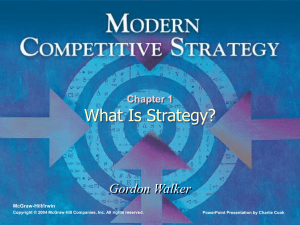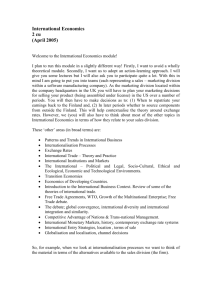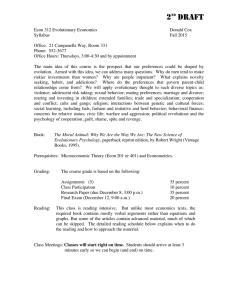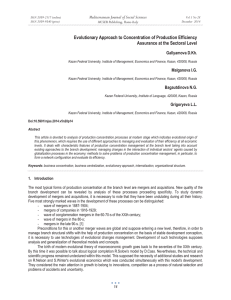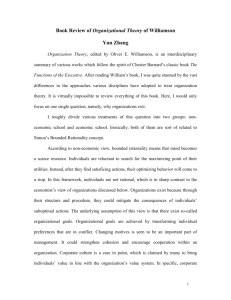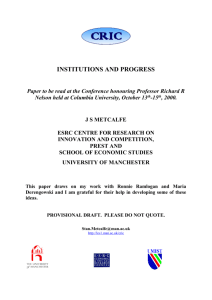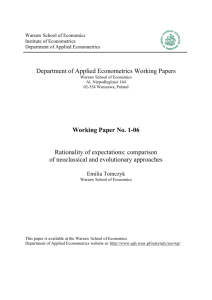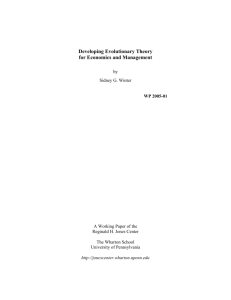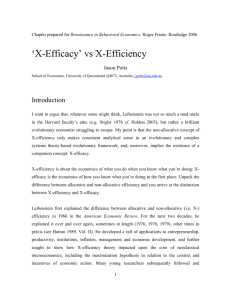EVOLUTIONARY ECONOMICS
advertisement
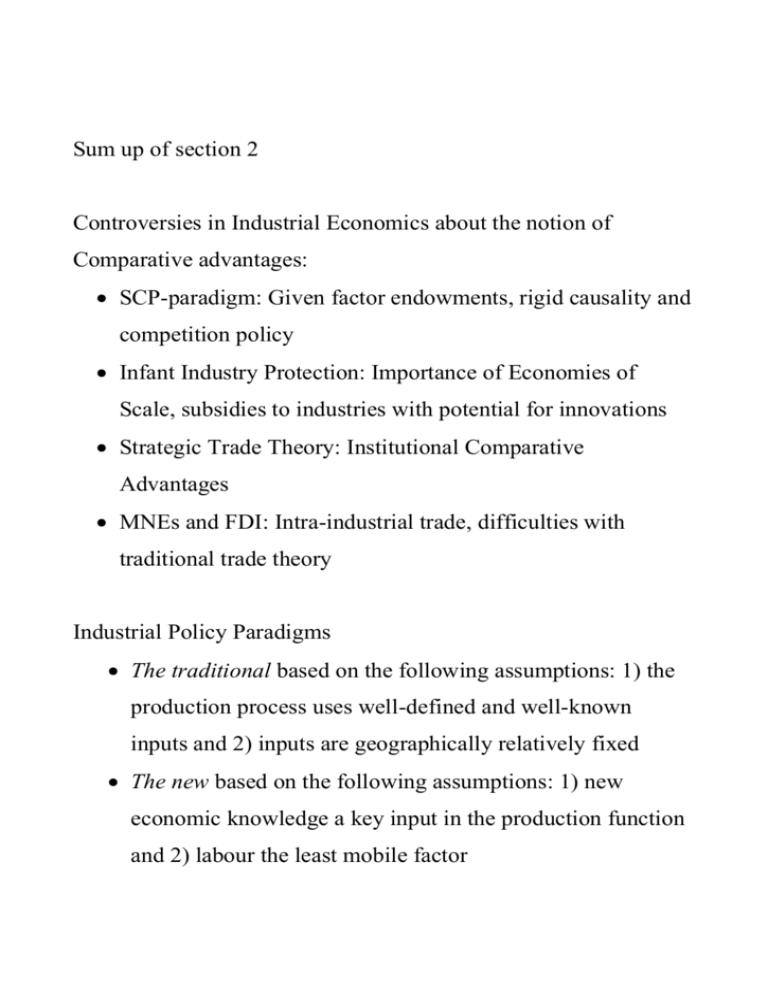
Sum up of section 2 Controversies in Industrial Economics about the notion of Comparative advantages: SCP-paradigm: Given factor endowments, rigid causality and competition policy Infant Industry Protection: Importance of Economies of Scale, subsidies to industries with potential for innovations Strategic Trade Theory: Institutional Comparative Advantages MNEs and FDI: Intra-industrial trade, difficulties with traditional trade theory Industrial Policy Paradigms The traditional based on the following assumptions: 1) the production process uses well-defined and well-known inputs and 2) inputs are geographically relatively fixed The new based on the following assumptions: 1) new economic knowledge a key input in the production function and 2) labour the least mobile factor EVOLUTIONARY ECONOMICS Is it appropriate to borrow concepts and methods from biology? Does biological thinking lead to new perspectives on and new solutions to problems considered in economics? Aim: Make you acquainted with basic principles of Evolutionary Economics Main contributions Market competition (Schumpeterian competition) Economic growth Technological change Nelson & Winter founders of the New Evolutionary Economics Darwinian Natural Selection Unlike the maximization metaphor, where actors have the foresight to make deliberate choices, selection is based on limited rationality (‘chance’, “choices are made by the environment”) IP-linkages to Policies that try to influence technical advance and growth by arrangements for the rewarding and the commercialization of innovative efforts Policy areas Policies on intellectual property and patents Public Technology Advisory Centres and EU policies for European Standardization Policies on knowledge-assets that are external to firms (supporting inter-firm technology exchange in clusters, public sponsoring of research programmes) Policies on markets for technology (selling of patents and licenses, technological joint-ventures) Evolutionary processes: “Competitive selection” = “Natural selection” transferred to Economics Economic change 1. A firm = a repertoire of ‘modes of behaviour’ (mob) 2. mob = a rule (routine) for making decisions or for the production of a product in a multi-product firm. 3. ‘Economic change’ = a firm substitutes one mob for another No ‘average, profit-maximizing firm’. A population of firms with various realized profits characterizes an evolutionary process at time t. The probability for survival depends on realized profits. Note the difference between ‘Darwinian change’ (natural selection where the genes mutate by chance) and ‘Lamarckian change’, where learning changes mobs Do institutions such as European Standardization constrain or enable the process of change? Diffusion of fixed technical specifications may hinder innovations that do not exactly confirm with the specifications Haldane’s dilemma 1. If the probability for genetic change is small, then the cost of genetic change (the ratio of ‘selective deaths’ to ‘survivors’) has to be high. 2. But if the number of ‘selective deaths’ increases over a certain limit, the whole population will be eliminated 3. Hence, the rate of genetic change has to be slow Calculations to be made by a policy-maker Social costs due to loss of potential output during the period while the unfit mobs are being eliminated (IP: Procedures for rewarding industrial research that speed up innovative activities) Social costs due to the fact that economic agents are eliminated in the process of competitive selection (IP: Offer training and education to unskilled workers) Economies of Scale? Infant Industry Protection? A “map” for your orientation and for discussion Forecasting social phenomena Model of rationality Decision-rule Inertia Industrial Economics Yes! Substantively rational behaviour: Perfect foresight Profit maximization Capability for learning and adaptation large Survival based Optimisation on calculus by individual units Evolutionary Economics Difficult! Chance is crucial Procedural rationality: Informationprocessing capabilities limited Mob (“routine”), imitation Competitive (natural) selection Evolutionary Economics + NeoDarwininan selection (Lamarckian change) Existing firms learn and adapt Change through creation of new firms:Change in existing firms rare Realized profits Realized profits
